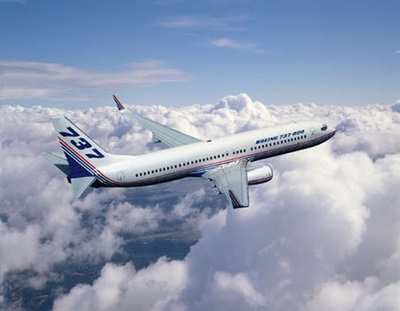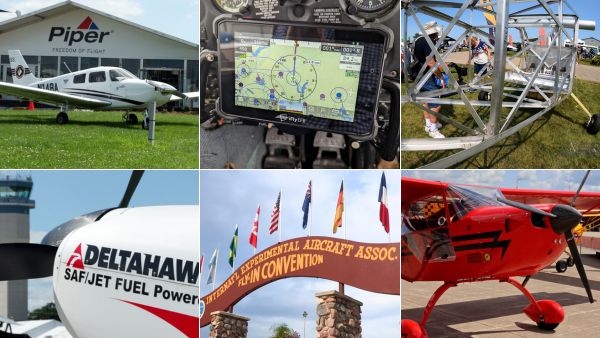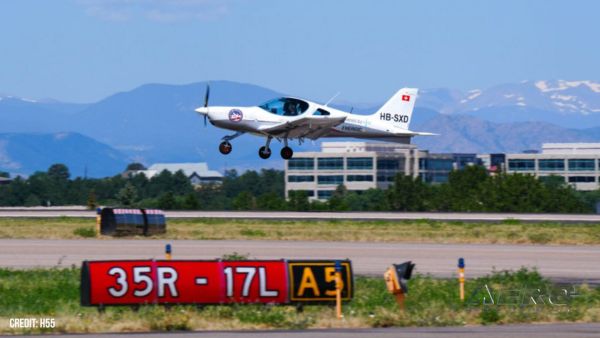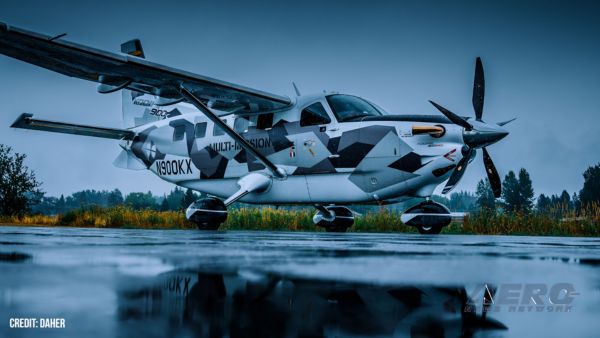Sat, Jun 25, 2011
Carrier Will Fly 737-800 "EcoDemonstrator"
Reducing fuel consumption, carbon emissions and community noise
were the focus of a joint announcement Tuesday by Boeing and
American Airlines. The carrier will be the launch customer for what
is being described as an evolutionary ecoDemonstrator Program. A
Boeing Next-Generation 737-800 aircraft will be used to flight test
and accelerate the market readiness of emerging technologies.

"We are proud to have American Airlines as our launch partner
for this new generation of technology that can bolster aviation's
role as the most efficient means of global transportation," said
Boeing Vice President of Environment and Aviation Policy Billy
Glover. "There's no better way to prepare advanced technologies for
market entry than flying them and no better choice than the best
selling single-aisle airplane of all time -- the Boeing
Next-Generation 737."
"American Airlines recognizes our responsibility to minimize our
impact on the environment as much as possible, and we look for
every opportunity to do so," said Captain John Hale, American's
vice president – Flight. "Our partnership with Boeing allows
us to make significant strides in putting more fuel-efficient
planes in the air, which is the most effective way to reduce our
carbon footprint. We remain committed to identifying and
implementing new technologies and programs that further our
environmental performance."
The American Airlines 737-800, and a twin-aisle airplane that
will be announced at a later date, are serving as the flight test
component for the FAA's Continuous Lower Energy Emissions Noise
(CLEEN) program – along with other technologies developed by
Boeing and other industry partners. Together with the American
Airlines engineering team, Boeing is finalizing plans for
installing the initial technology applications aboard the first
airplane.

Specific technologies that will be flown in 2012 include:
- Adaptable trailing edge technology – a technology being
developed under the FAA CLEEN Program, it reduces noise and
emissions during all phases of flight including take-off, cruise
and landing.
- Variable area fan nozzle – reduces community noise and
enables advanced engine efficiency technologies.
- Flight trajectory optimization for in-flight planning –
enables airlines to determine and fly more fuel-efficient routes
and provides flight crews the ability to reroute for weather and
other constraints.
- Regenerative fuel cells for onboard power – efficiently
stores and generates power, and adapts to aircraft electrical
systems demand, potentially reducing weight, fuel burn and CO2
emissions.
"Our ecoDemonstrator flight test program allows us to accelerate
promising technologies and move them onto airplane models and into
new aircraft design considerations across the industry," said
Boeing ecoDemonstrator Program Manager David Akiyama. "It also
allows us to verify airplane applicability and identify and
eliminate potential integration challenges."
More News
Charted Visual Flight Procedure Approach An approach conducted while operating on an instrument flight rules (IFR) flight plan which authorizes the pilot of an aircraft to proceed >[...]
“When l became the Secretary of Defense, I committed to rebuild our military to match threats to capabilities. Drones are the biggest battlefield innovation in a generation, >[...]
Aero Linx: Stearman Restorers Association Welcome to the Stearman Restorers Association. The Stearman Restorers Association is an independent “Not for Profit” 501C-3 Co>[...]
Airplane Exhibited A Partial Loss Of Engine Power When It Was About Halfway Down The Runway Analysis: The pilot of the experimental amateur-built airplane was departing from his pr>[...]
The Flight Path Was Consistent With Low-Altitude Maneuvering On June 18, 2025, about 0922 mountain standard time, a Cessna A150L airplane, N6436F, was substantially damaged when it>[...]
 ANN's Daily Aero-Term (07.15.25): Charted Visual Flight Procedure Approach
ANN's Daily Aero-Term (07.15.25): Charted Visual Flight Procedure Approach Aero-News: Quote of the Day (07.15.25)
Aero-News: Quote of the Day (07.15.25) ANN's Daily Aero-Linx (07.15.25)
ANN's Daily Aero-Linx (07.15.25) NTSB Final Report: Kjelsrud Gary Kitfox
NTSB Final Report: Kjelsrud Gary Kitfox NTSB Prelim: Cessna A150L
NTSB Prelim: Cessna A150L




